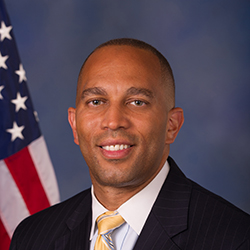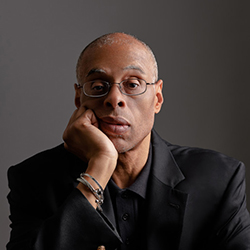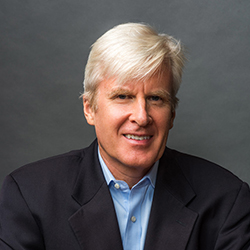Copyright and Social Justice
This event will explore how historically disadvantaged communities benefit from copyright law to the advantage of communities as a whole
"Copyright and Social Justice,” a Copyright Matters event, focuses on the links between copyright protection and social justice. Public conversations surrounding copyright often presume that copyright primarily benefits owners of successful media properties to the disadvantage of those who aren’t part of large media groups. However, copyright law incentivizes the creative efforts of all authors. It applies to all types of creators, from established and sophisticated creators to individual artists not as familiar with the law. This event will explore how people from historically disadvantaged communities benefit from copyright law to the advantage of communities as a whole.
- The Hon. Hakeem Jeffries, U.S. representative from New York and member of the House Subcommittee on Courts, Intellectual Property, and the Internet, will give opening remarks, followed by a discussion featuring:
- Lateef Mtima, professor of law at the Howard University School of Law and founder and director of the Institute for Intellectual Property and Social Justice;
- Robert Brauneis , professor of law and co-director of the Intellectual Property Law Program at the George Washington University Law School;
- Kim Tignor, executive director of the Institute for Intellectual Property and Social Justice and founder of Take Creative Control; and; and
- Hollis Wong Wear, A Grammy-nominated singer, songwriter, speaker, creative producer, and creators’ rights advocate.
Register Here
Recording of Copyright & Social Justice, which took place at the Library of Congress on January 15, 2020
As a follow up to "Copyright & Social Justice," the U.S. Copyright Office interviewed Lateef Mtima, professor of law at the Howard University School of Law and founder and director of the Institute for Intellectual Property and Social Justice, as part of our Copyright Spotlight series. Professor Mtima discussed how the COVID-19 pandemic and protests against police brutality have impacted creators and creative communities of color. He also explained how sociopolitical movements have inspired creative works.





